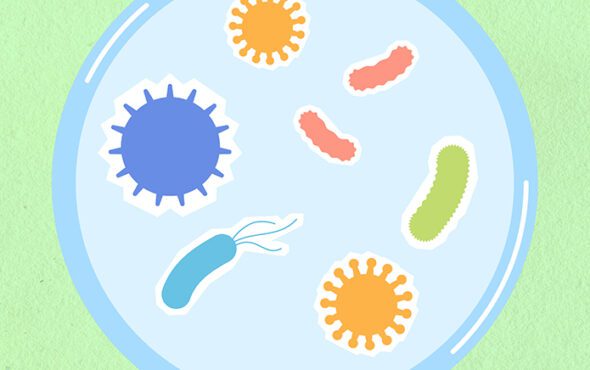
You may have heard of more common sexually transmitted infections (STIs) such as gonorrhoea, chlamydia, and syphilis. You might even know what the symptoms are and how to get treatment. But have you heard of Shigella?
Most of us who need to know about it either haven’t heard of it, know very little about it, or don’t know how it is caused, diagnosed, treated or prevented.
Shigella is a bacterium that causes a gut infection with symptoms ranging from feeling sick, severe diarrhoea, vomiting, abdominal pain, and fever. As symptoms are similar, it’s often mistaken for food poisoning.
It’s typically caught from having sex with someone who is infectious by unintentionally ingesting faeces (poo), especially through rimming. You can get it from having penetrative sex, fingering, fisting, or sharing sex toys as there might be small amounts of bacteria on your hands or things that end up in your mouth. Shigella can be transmitted when handling condoms if bacteria travels from your hands to your mouth. It can also be caught from contaminated water and food when travelling abroad.
Symptoms begin within one to four days of exposure and last three to seven days, but can take longer. In some cases, symptoms lead to hospitalisations.
It only takes a small amount of bacteria to make you unwell
A misconception is that lots of bacteria are ingested to become poorly but it only takes a very tiny amount of bacteria for Shigella to be transmitted. Sex does not have to be “messy” for it to be passed on. Some people carry it without any symptoms, too.
The illness can be quite severe
Symptoms can be physically immobilising, and people who have recovered from it may not feel better for a couple of weeks.
Many people who have had it were shocked at just how sick they became, describing it as the most ill they have ever been. Some people have diarrhoea containing blood or mucus, which can be unsettling.
Symptoms CAN go away on their own
Not everyone needs treatment as symptoms can settle within a week. However, if you become seriously ill you should see a clinician to get the right treatment to clear the infection.
If you have a bad case of diarrhoea after a hook-up, contact your sexual health clinic or your GP and explain that you’ve had sex and your symptoms match Shigella.
There’s a risk of dehydration
If you have frequent diarrhoea, drink lots of fluids to replace those lost and stop you from becoming dehydrated. Try drinking plenty of water, fruit juices and sports drinks that replace salts and minerals.
Taking painkillers, such as paracetamol, can help to relieve pain and fever, but it’s advised to avoid anti-diarrhoea medicines, such as Imodium, because they may make things even worse.
Shigella can be VERY resistant to antibiotics
Symptoms could clear up quickly, but if you have a particularly persistent case lasting longer than a few days, you should be prescribed a short course of antibiotics by your sexual health clinic or your GP. However, Shigella is becoming more resistant to some antibiotics, so you may have to give a stool sample to get the right tests and antibiotics.
You could have been exposed other STIs
If you’ve had sex that puts you at risk of Shigella, it’s possible that you might have been exposed to other STIs. Regardless of your HIV status, after a Shigella diagnosis it’s advised to have a full sexual health check-up at a clinic or by ordering tests online. Enquire about U=U, PrEP, and vaccines for other STIs, such as hepatitis A, hepatitis B, and HPV.
It’s best to avoid sex until seven days after your last symptom of Shigella ends to avoid passing it on to others.
You can avoid passing it on
It’s possible to transmit it to people you live with, or with whom you have close (non-sexual) contact. Keep close contact with anyone else to a minimum, avoid sharing towels and facecloths, and wash your laundry on the highest setting possible.
Wash your hands with soap and hot water regularly throughout the day, especially after using the toilet and do the same before handling, eating or cooking food, or handling babies and feeding the young or the elderly to avoid transmission.
You can prevent Shigella by practising hygiene
To do this, avoid going back to oral sex after anal sex or anal play has started, especially with new partners. Rimming, fingering and fisting also increases your risk, but you and your partners can lower it by washing your hands, bum and genitals with soap and hot water after having anal sex or anal play.
For more information about Shigella, click here or call the free National Sexual Health Helpline at 0300 123 7123.
For the latest data on Shigella in England, click here.



